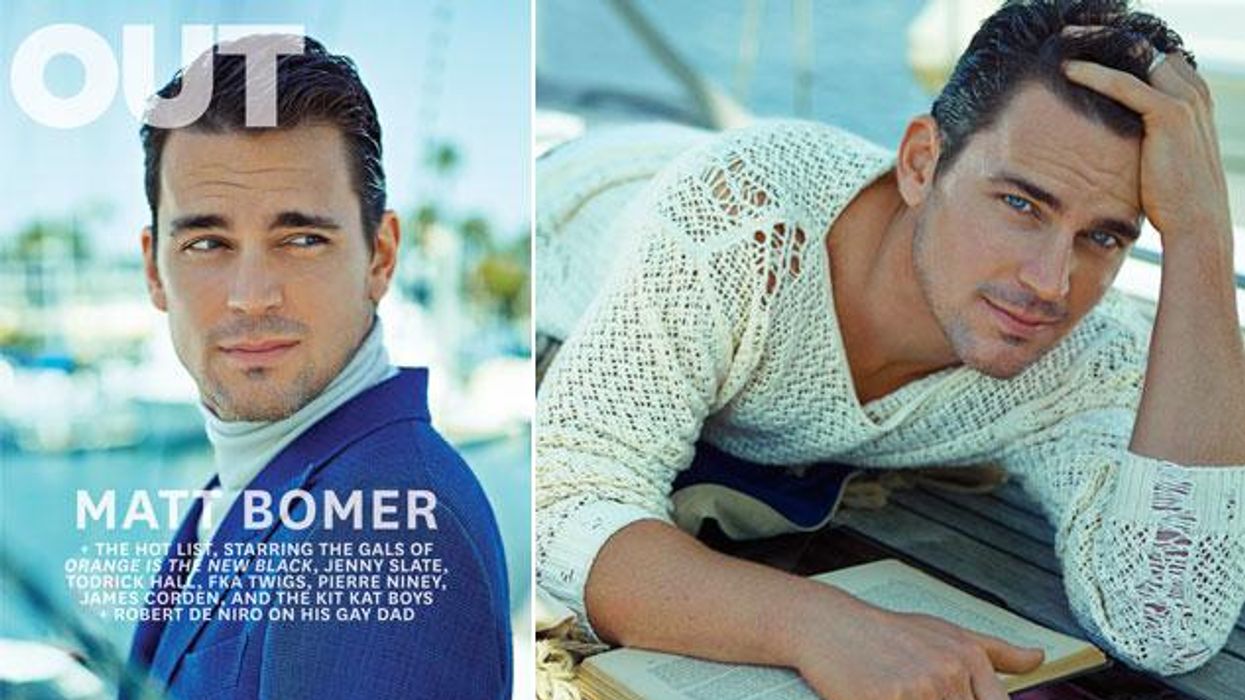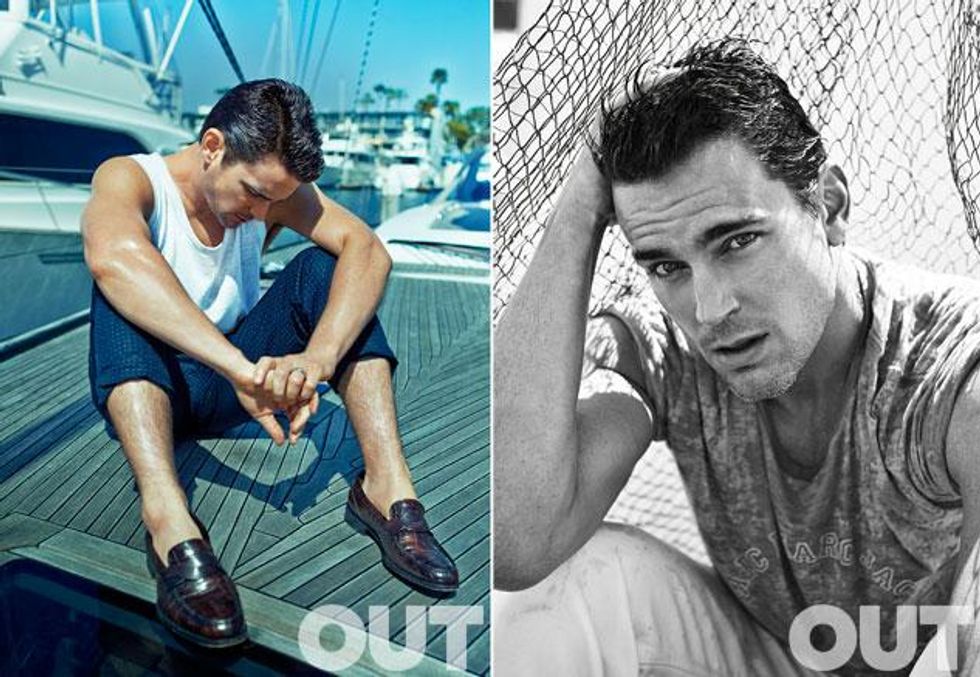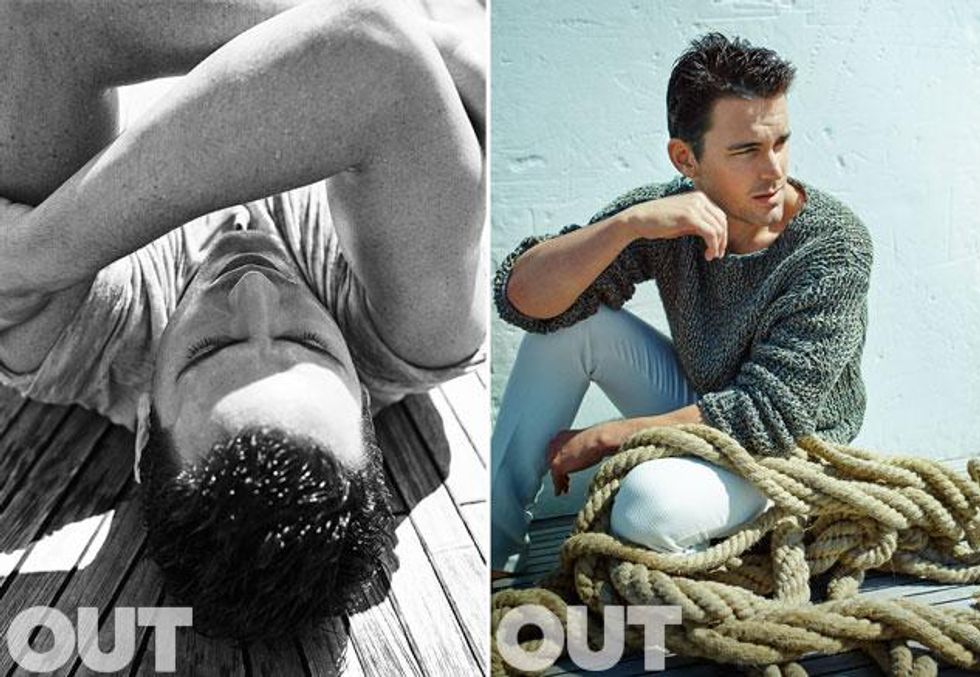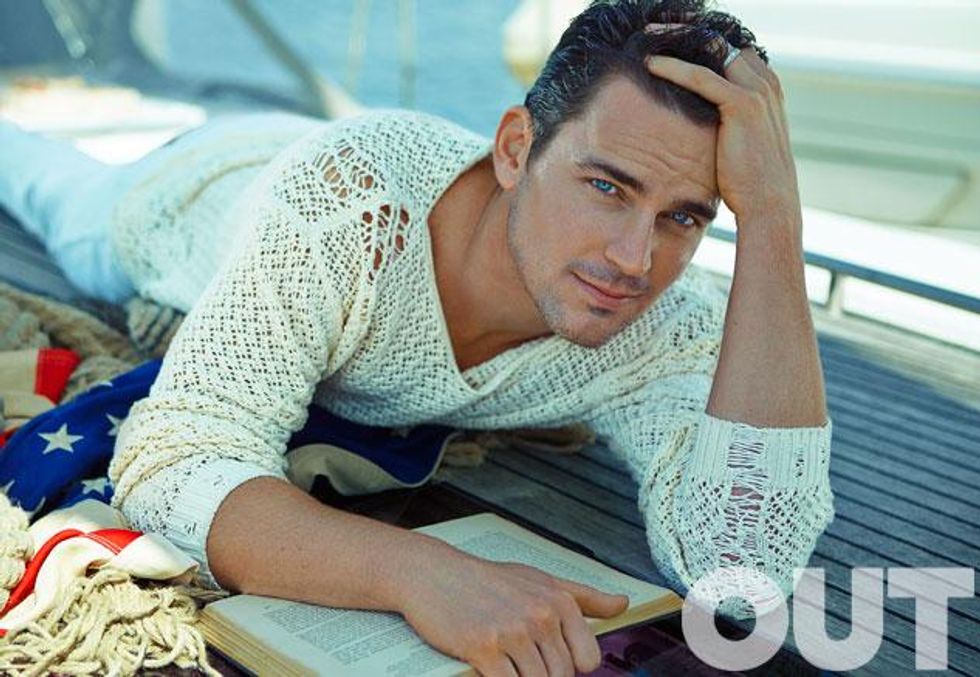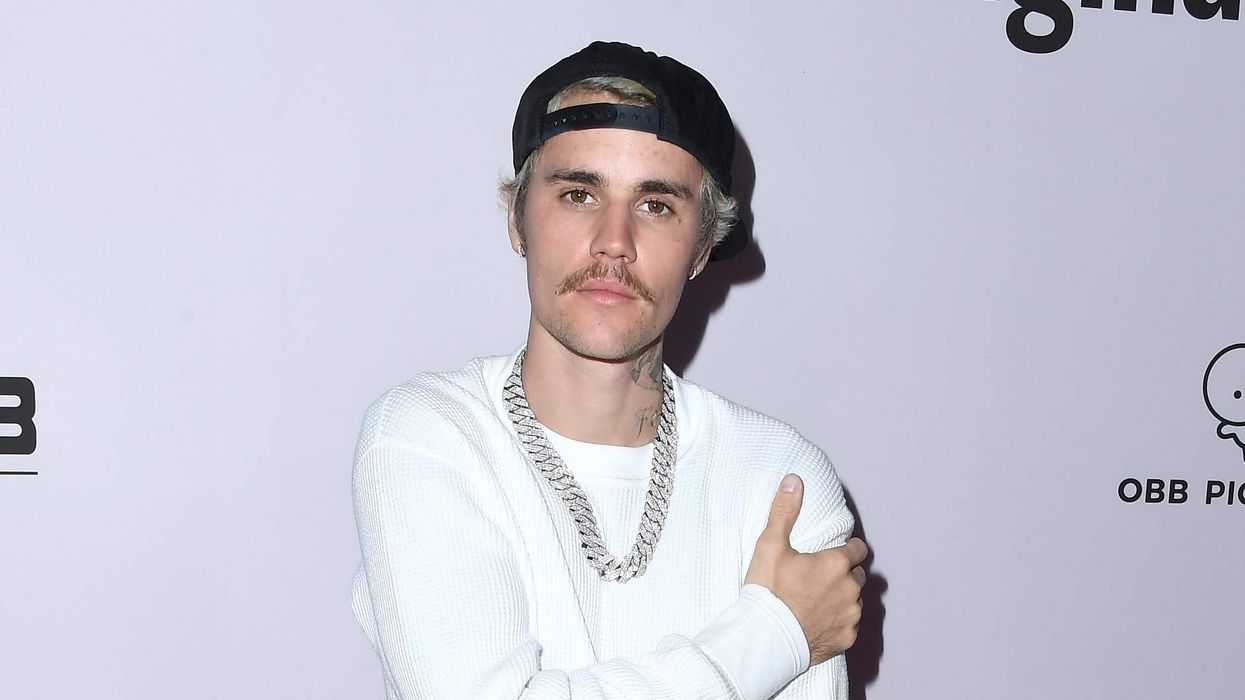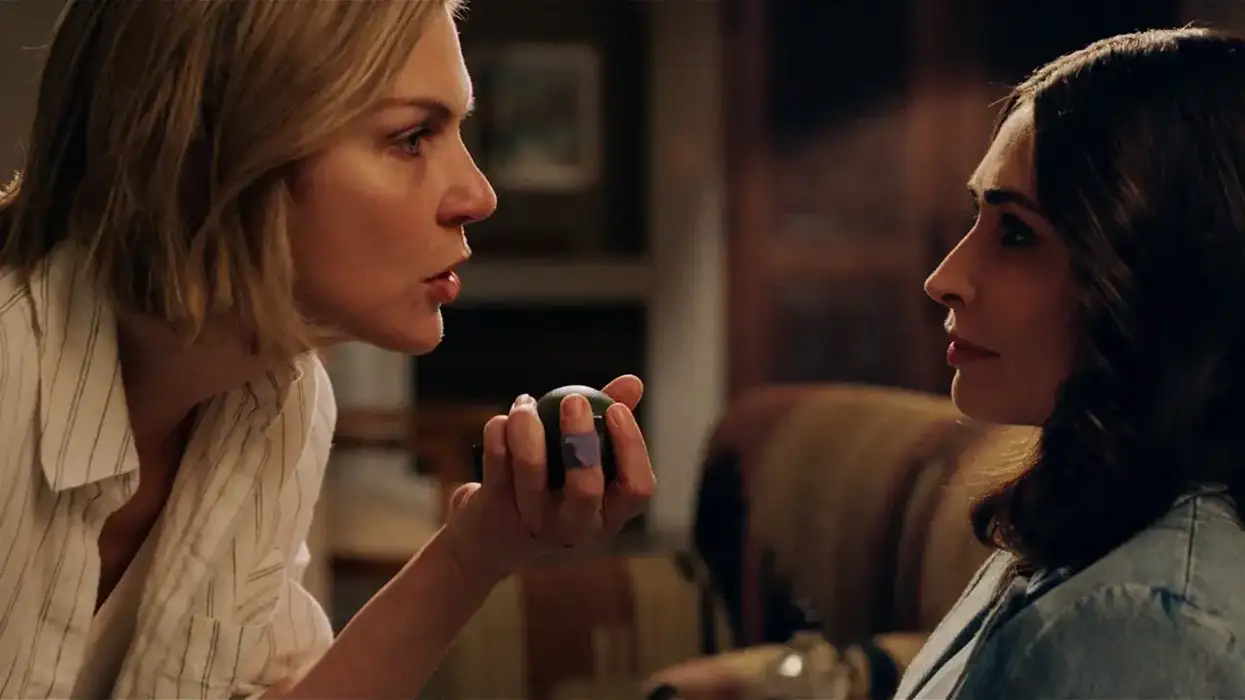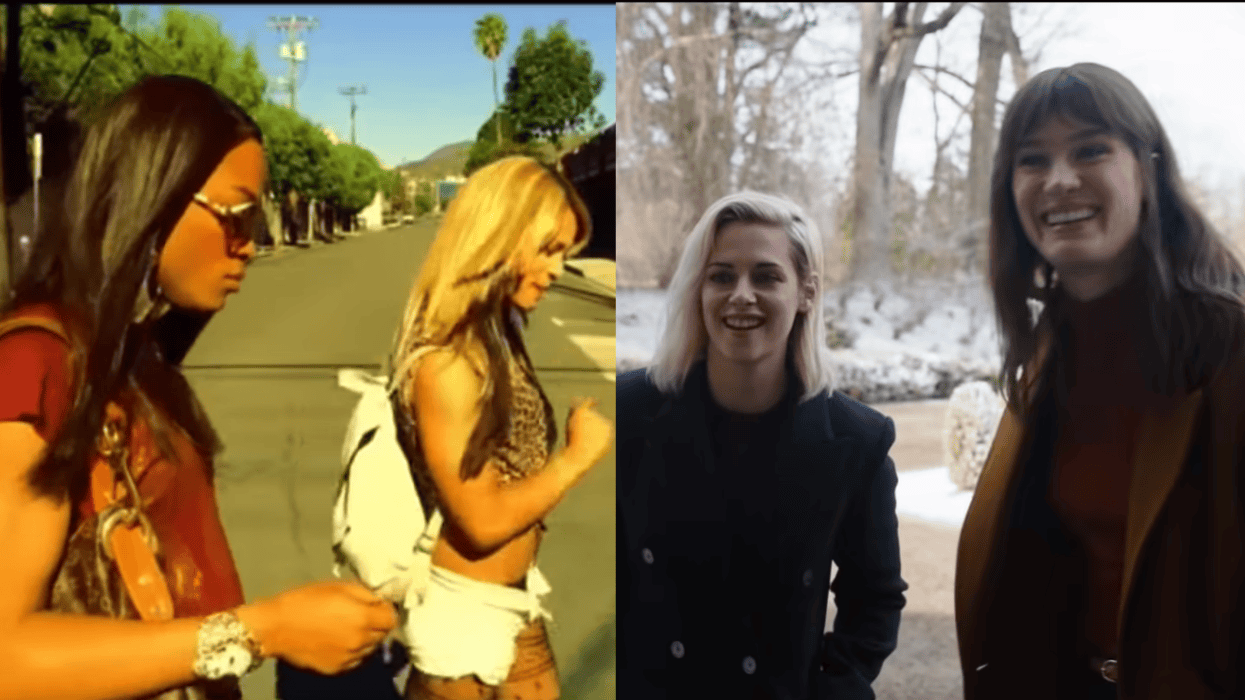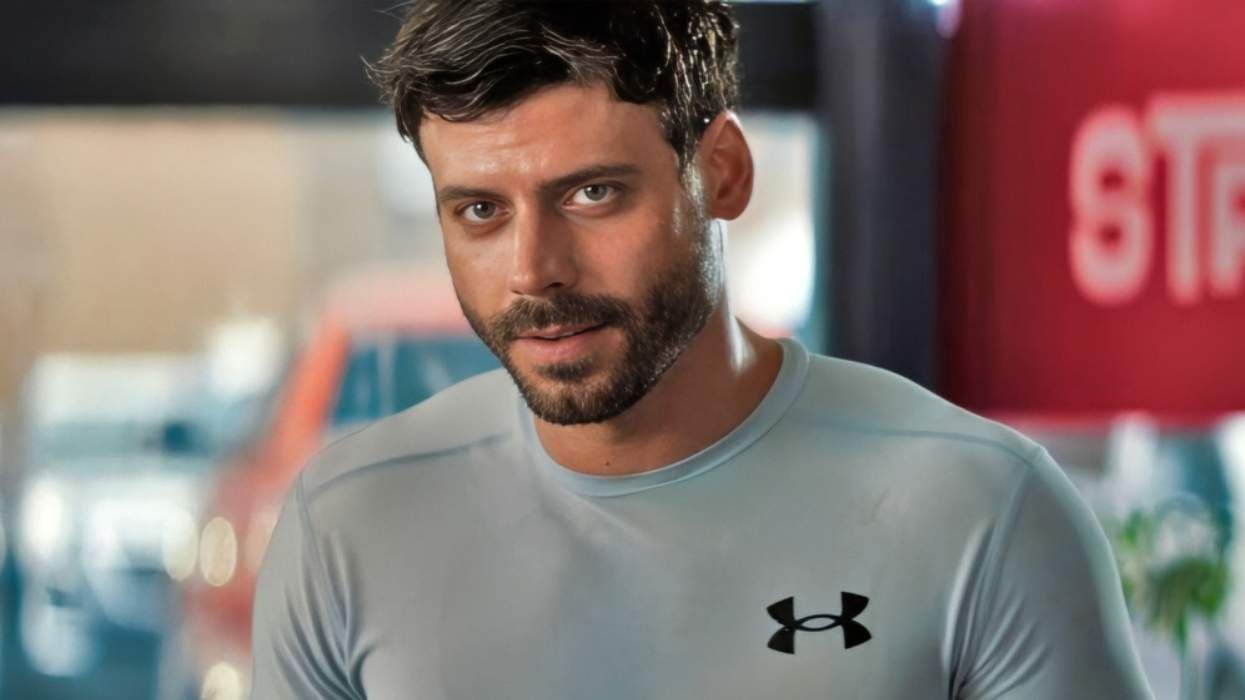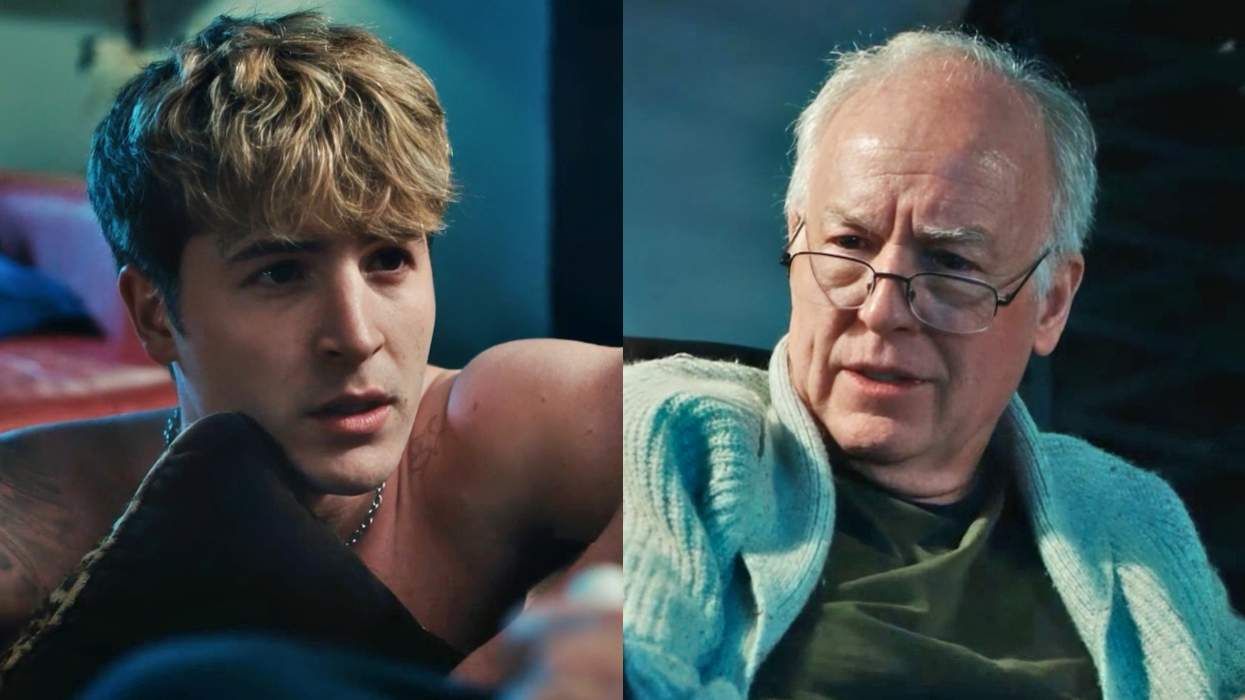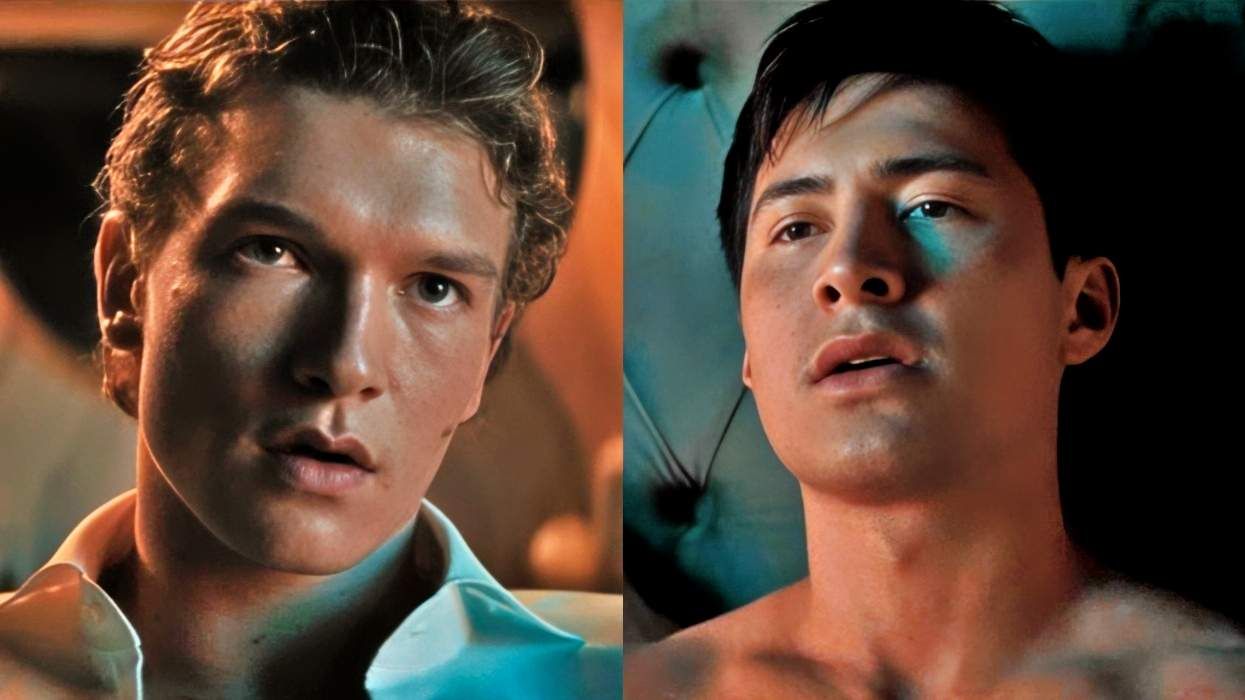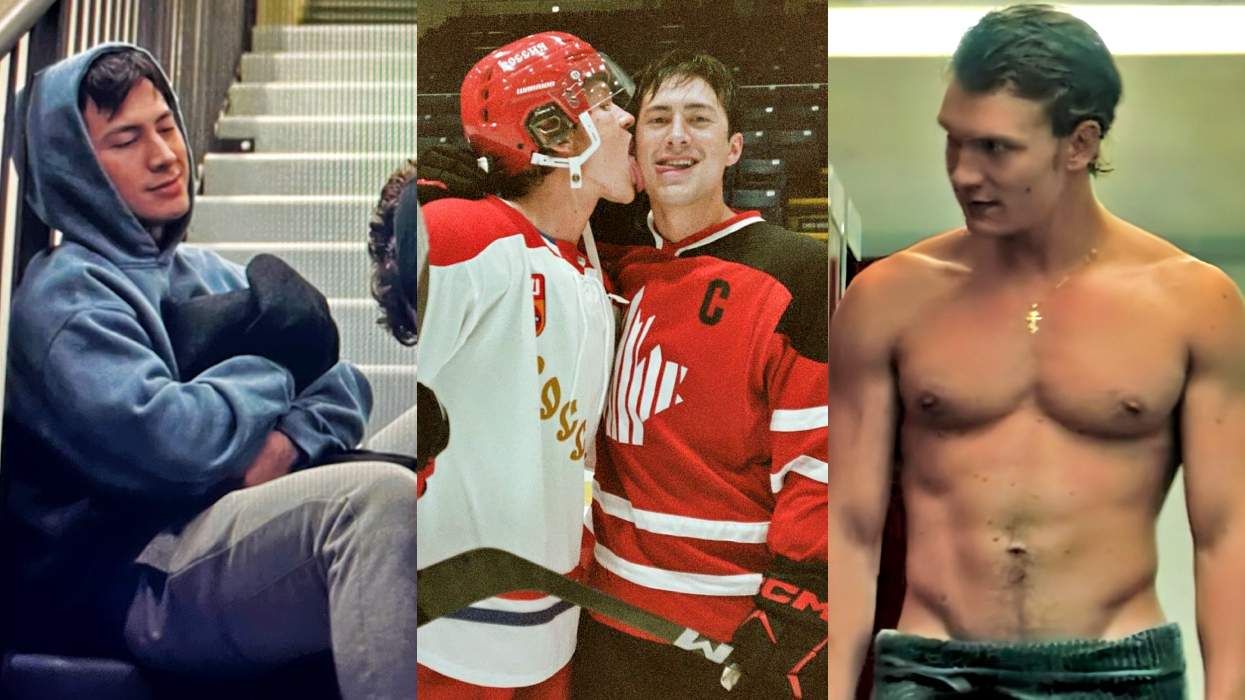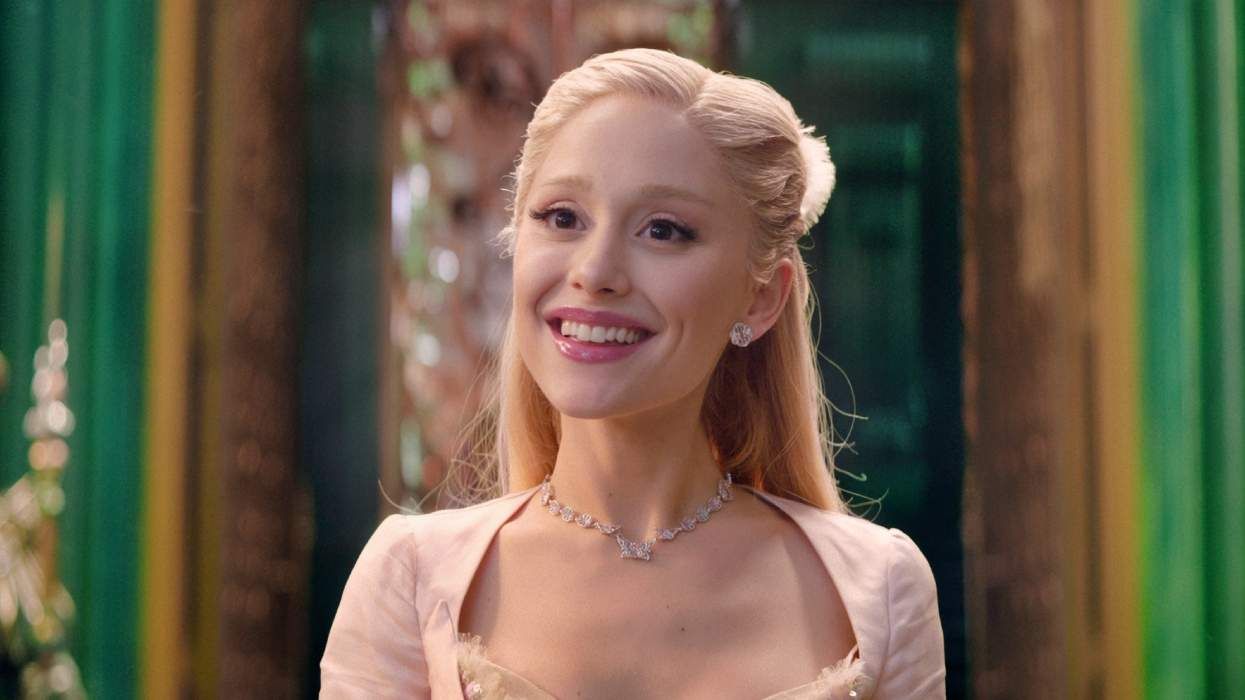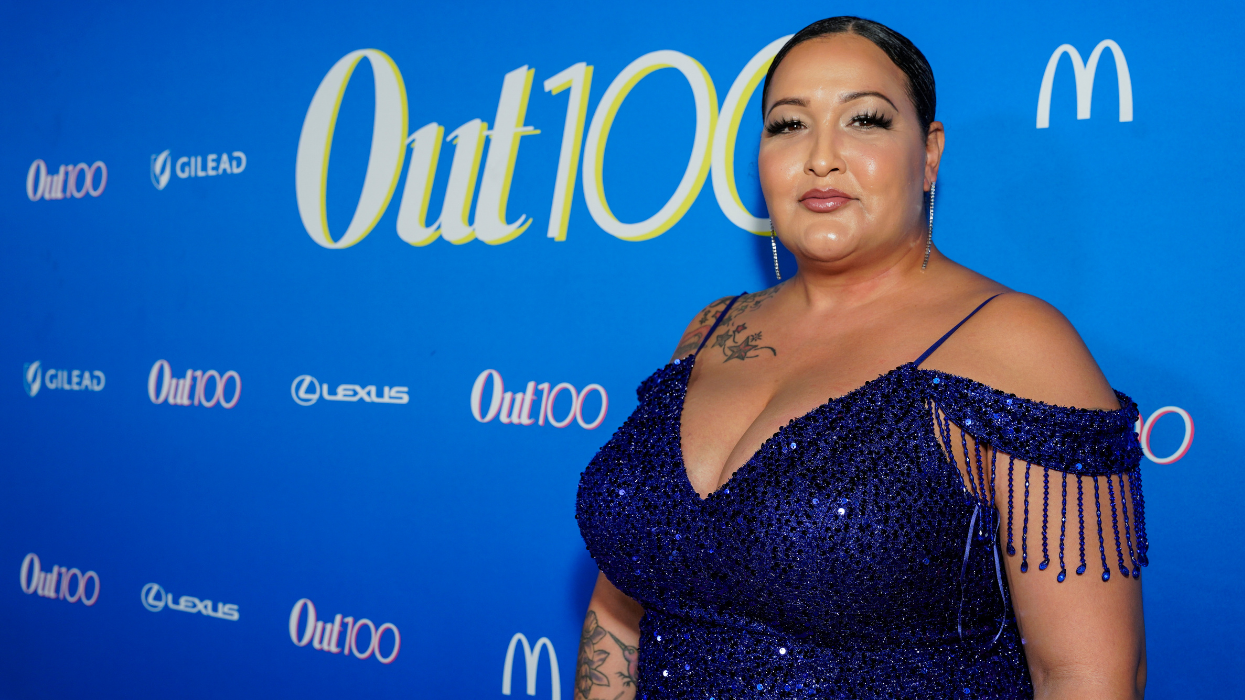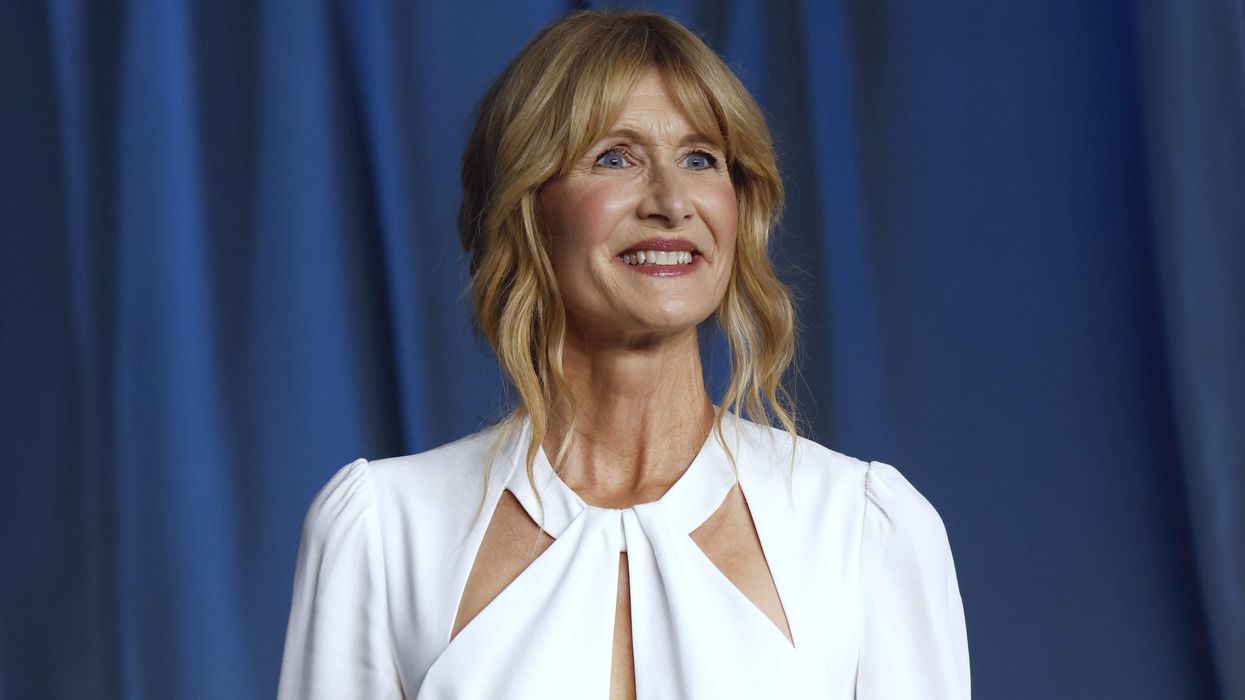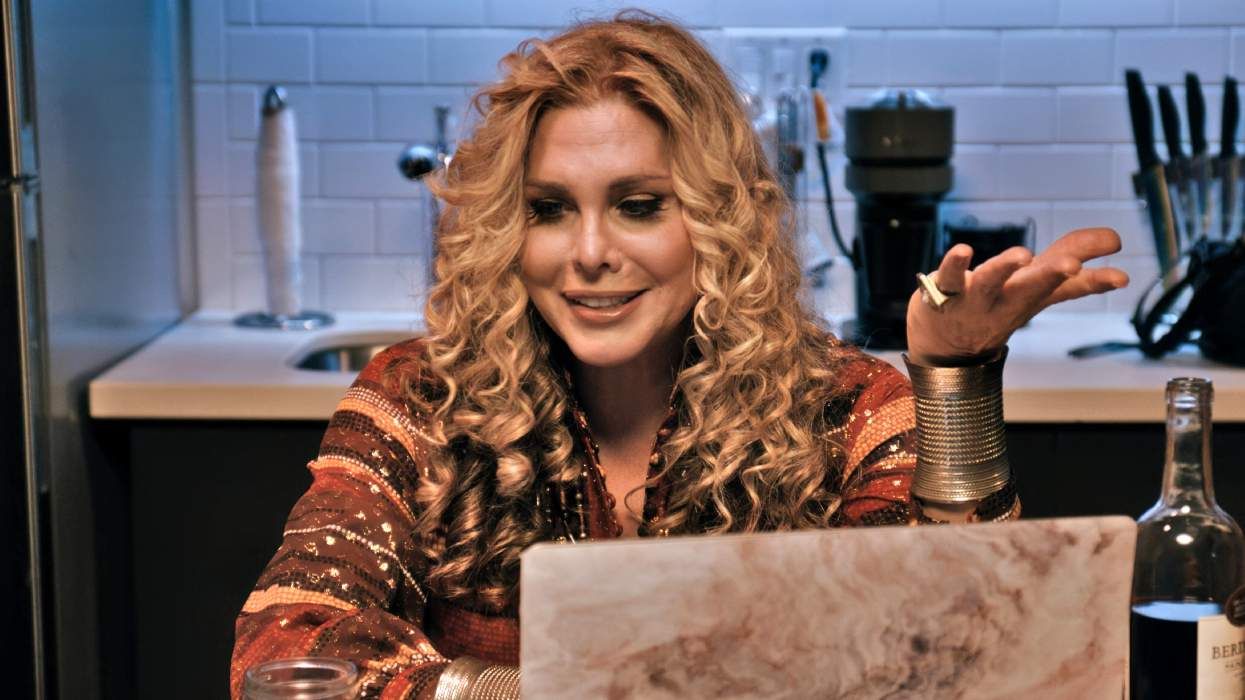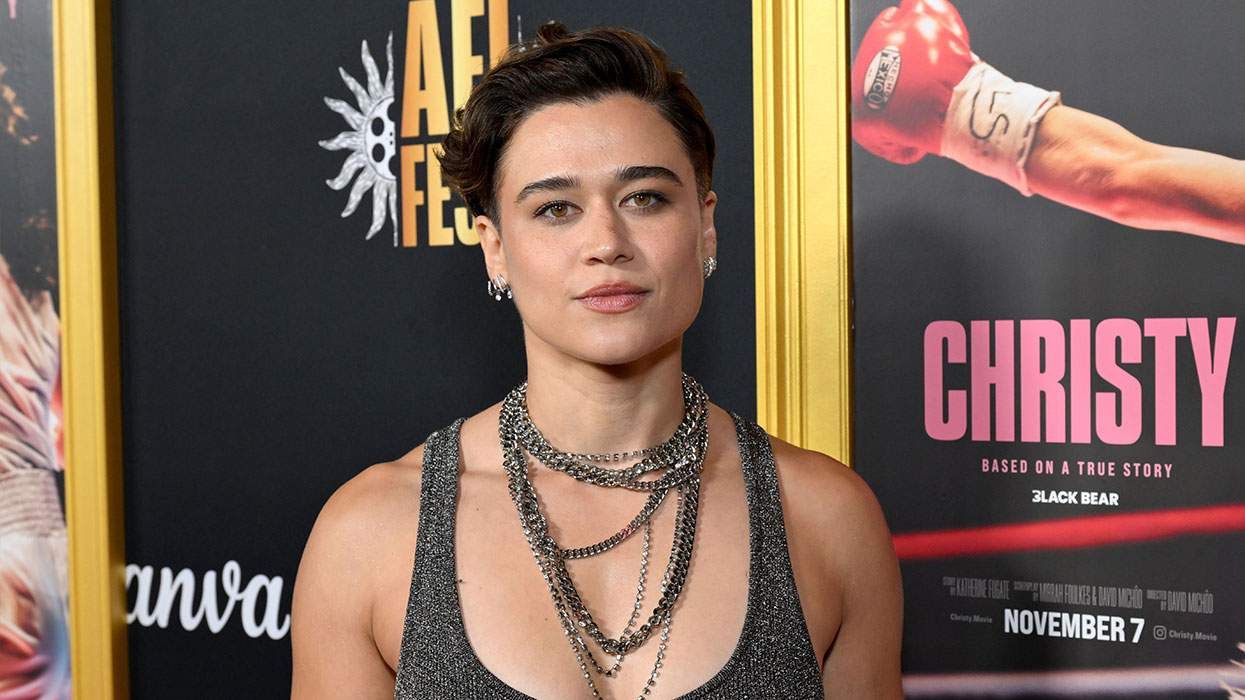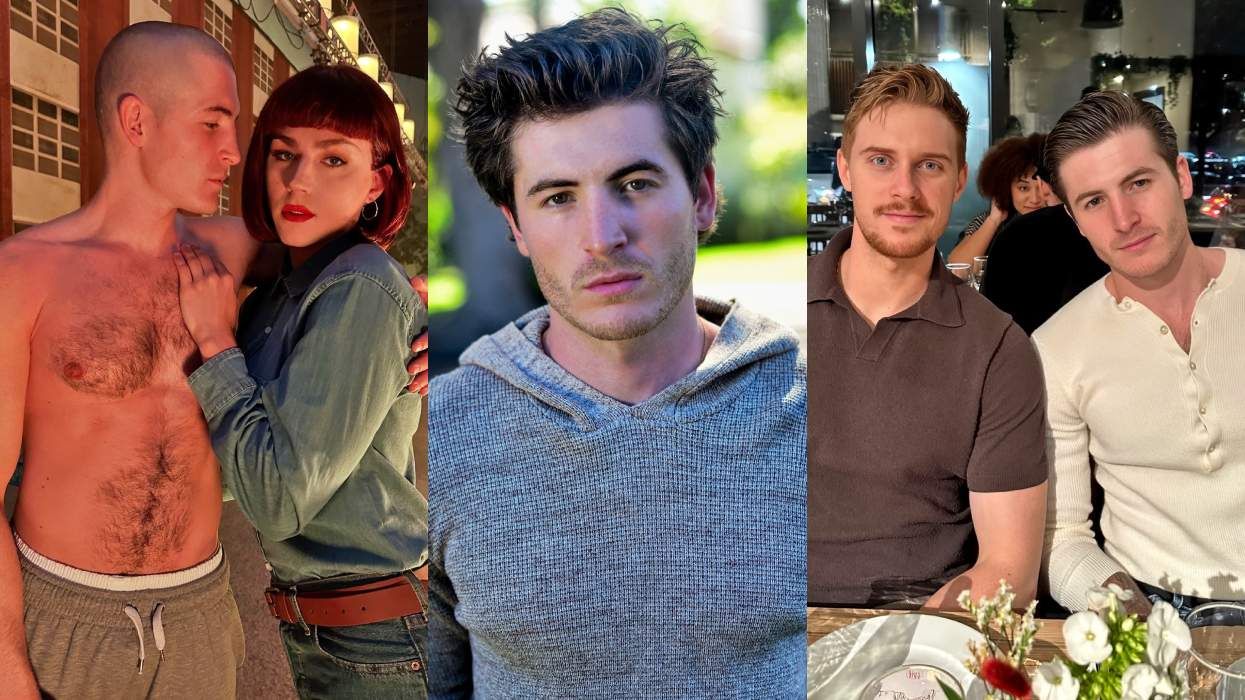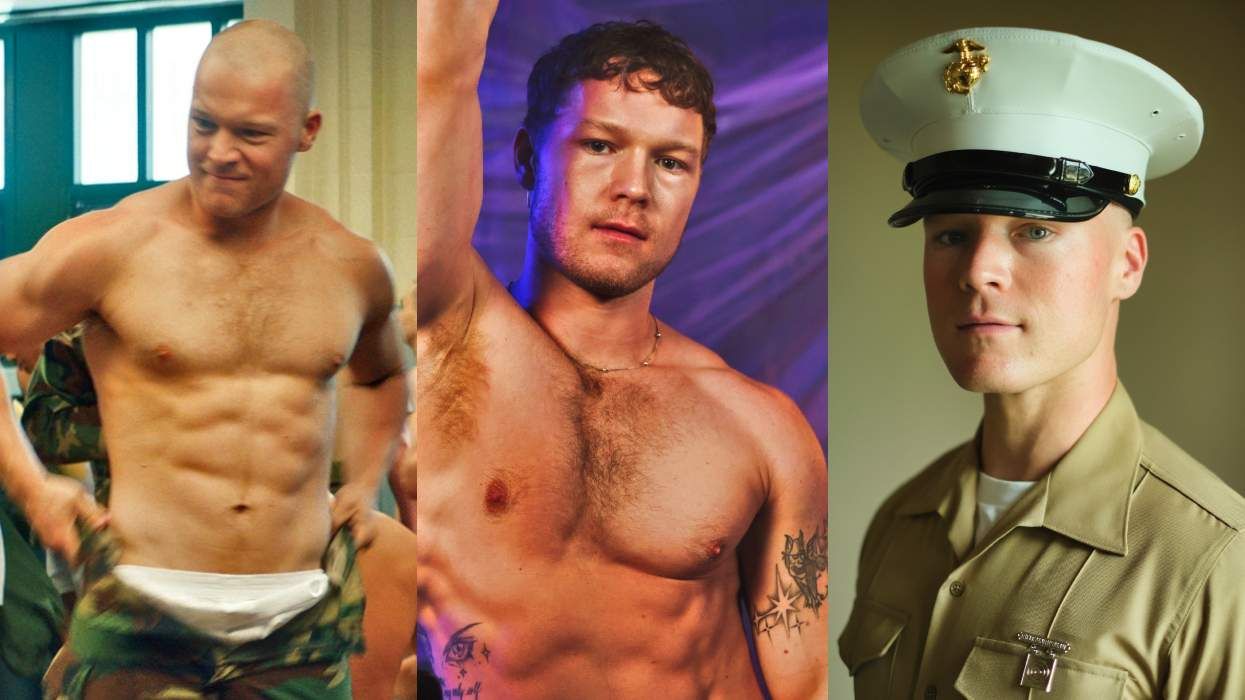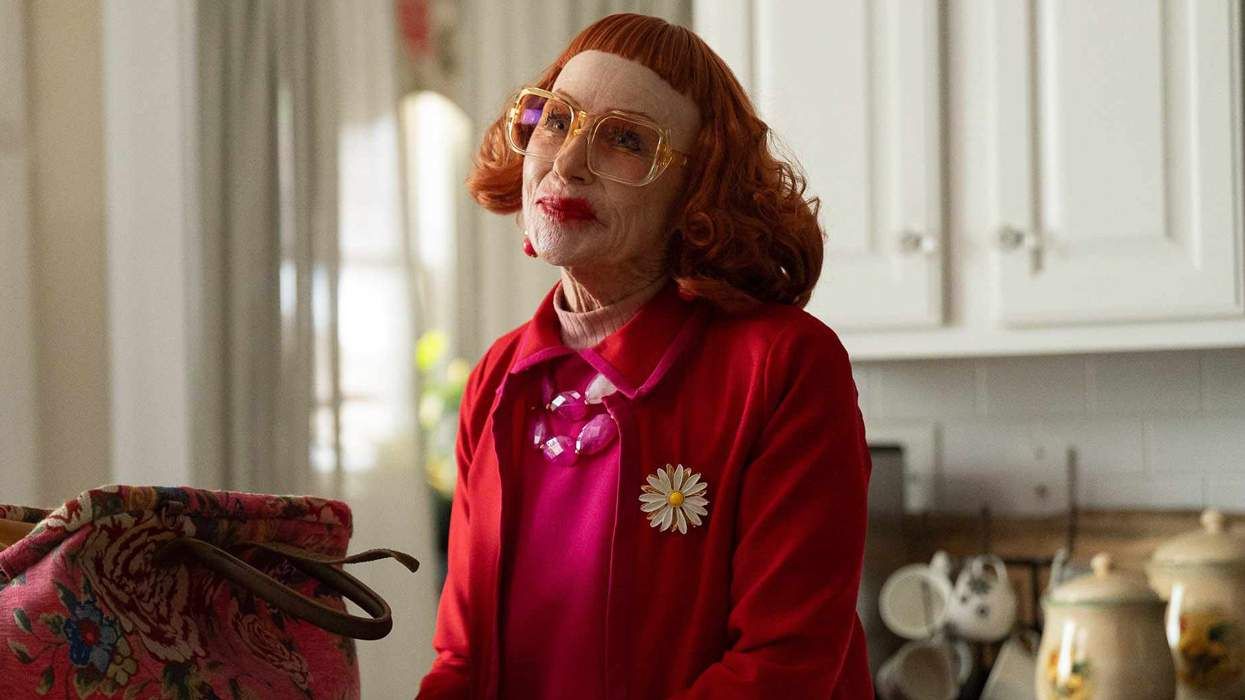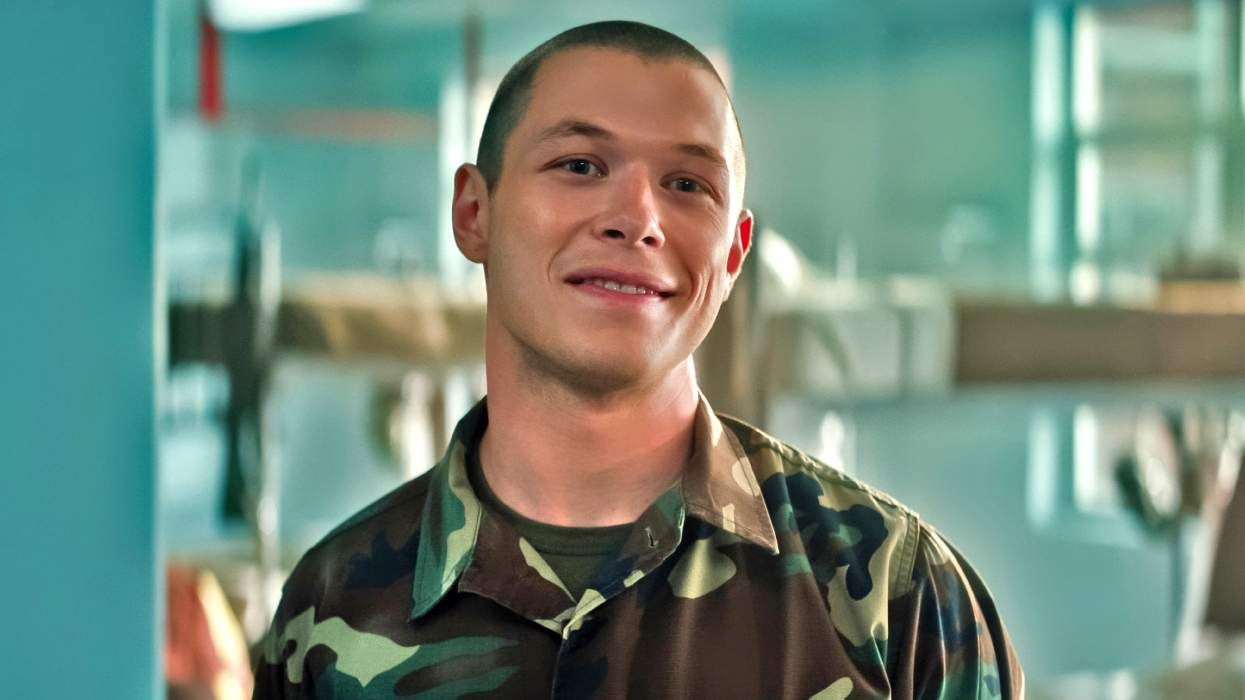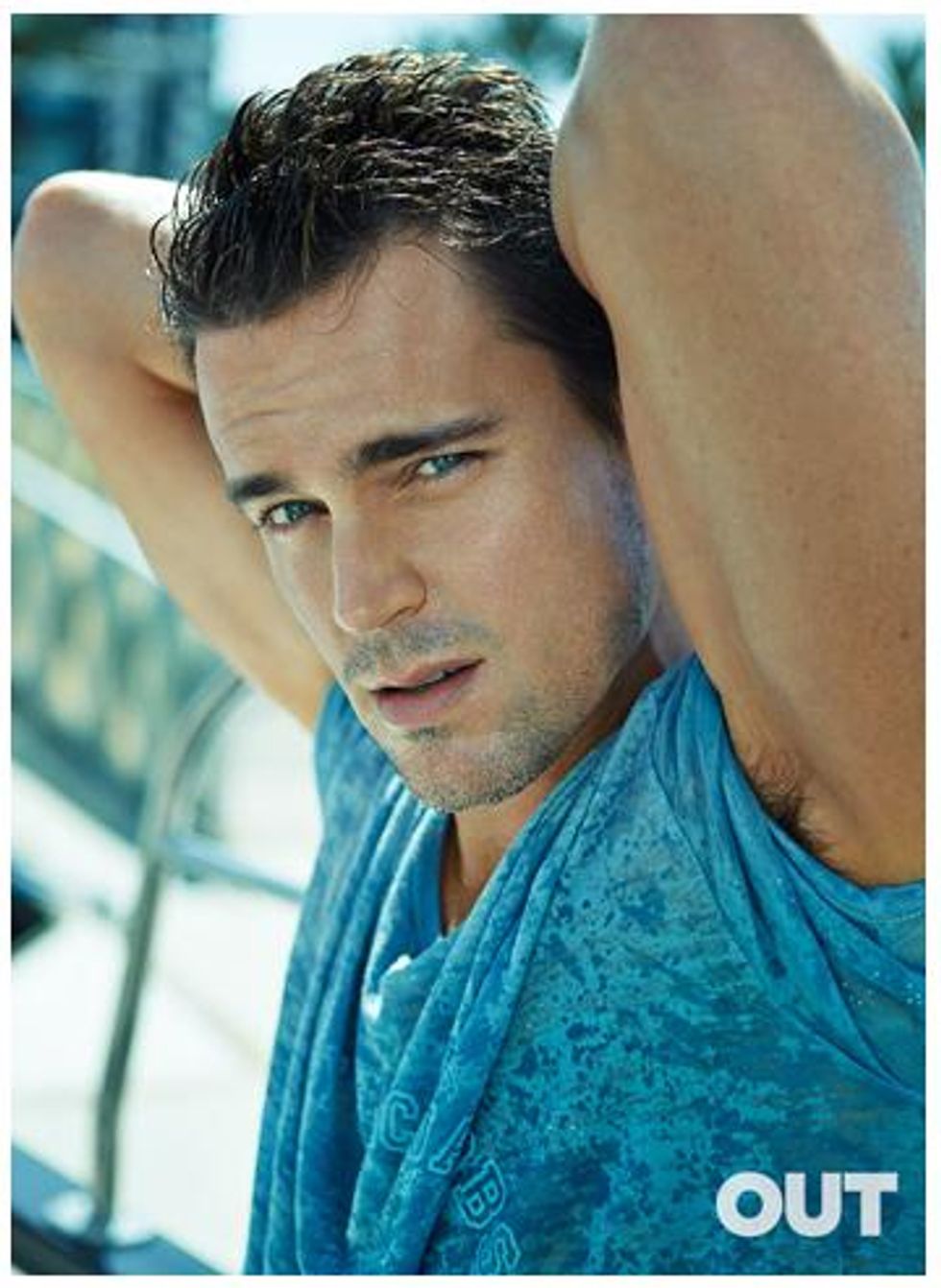
Before Matt Bomer even knew he was gay, he found Larry Kramer -- or maybe Larry Kramer found him. In the closet of his high school theater in Spring, Texas, Bomer's teacher had built a small library of scripts acquired on trips to New York.
Bomer pulled Kramer's The Normal Heart off the shelf. He was 14. He loved acting, but he was the son of a former Dallas Cowboys player, so he also played football. He had girlfriends. His family went to church multiple times a week. It was the early 1990s, and for a Texas teenager, the AIDS epidemic was happening somewhere else, to someone else.
"I was relatively sheltered," he says. The Normal Heart was his wake-up call. "It wasn't until I read Larry's work that I had any kind of understanding as to what was really going on in the world around me. It just lit this fire in my belly." He was outraged at the injustice portrayed in the play, at the story of gay men whose unexplained, horrifying deaths seemed inconsequential -- at best -- to the many doctors and lawmakers and media who looked the other way.
So he started performing monologues at school from The Normal Heart and its companion piece, The Destiny of Me, and from another closet library find, Tony Kushner's Angels in America. "I felt the need to let people know that this was going on," he says -- even if his audience was largely other theater kids in Houston's suburbs. "I probably stuck out like a sore thumb."
But as much as Kramer's outrage spoke to a young Bomer, the underlying gay love story in The Normal Heart -- between the activist Ned Weeks (based on Kramer) and Felix Turner, a New York Times style reporter -- also worked its way deep into his teenage consciousness. "I knew on some level, even if it was way on the periphery, that it was part of my story, too."
Twenty years later -- after Bomer left Texas, graduated from Carnegie Mellon's famed theater conservatory, and slowly built a solid, steady career on TV -- Ryan Murphy became the latest, and ultimately last, in a long line of people in Hollywood determined to bring The Normal Heart to the screen.
Based on the true story of Kramer and his friends who founded the Gay Men's Health Crisis, the play's action takes place from 1981 to 1984. It was originally staged off-Broadway in 1985. "It was a period piece, but it felt so modern," says Murphy, who created Glee, American Horror Story, and Nip/Tuck. "I think there are a lot of young people, particularly young gay people, who don't know this story."
Like Bomer, Murphy had long been awed by Kramer's work. "I asked to meet him, and I sat on his couch, and I wouldn't leave that room until he gave me the rights," Murphy says. "I told him that I wouldn't give up until it was made." The two worked together over three years to revise Kramer's screenplay, which Murphy would direct for HBO, and, finally, begin casting together. Mark Ruffalo "passed muster" with Kramer, as Murphy puts it, to play his alter ego, Ned. (Kramer, now 78, declined interviews because he was in the hospital.)
Bomer, whom Murphy had cast in guest roles on Glee (he played Darren Criss's older brother) and The New Normal (as Andrew Rannells's ostentatious ex-boyfriend), campaigned aggressively to play Felix. "Matt, out of everybody, fought the hardest for it," Murphy says. "It was that same passion that I had used to persuade Larry Kramer to give me the rights to the play."
He told Kramer they'd found their Felix. "I said, 'I really believe in Matt Bomer.' And Larry said, 'But he's so beautiful! Is he too beautiful?'"
Murphy arranged a meeting between the two men. "I was pretty starstruck," Bomer says. "It was like meeting one of the Beatles. He was so central to my understanding and development. We talked for a really long time."
Kramer emailed Murphy immediately after: "He's the one."
SLIDESHOW | Matt Bomer Sitting On the Dock of the Bay
For The Normal Heart to hit its emotional bullseye -- to educate and inspire an audience about how homophobia-fueled inaction allowed AIDS to blossom into a worldwide catastrophe -- it must also humanize its cantankerous protagonist, Ned. Kramer (and his fictional stand-in) has a reputation for irascible, unending rage at everyone who gets in his way, including himself. "People think of Larry as this person screaming into the wind," Murphy says. "I wanted to capture his lovable, kind, intimate side."
The movie's most persuasive arguments for Ned's humanity -- and its most tender, heartbreaking moments -- are found in his relationship with Felix, which begins just as Ned's friends start dying.
Felix is deeply closeted at work, despite having perhaps the newspaper's gayest job. "I just write about gay designers and gay discos and gay chefs and gay models and gay everything," he tells Ned when they first meet. "I just don't call them gay." Ned snaps, "Isn't it time you start?"
But Felix is also adamant that two men can love each other and be better for it, which, even after years of therapy, Ned still struggles to fully internalize. "Men do not naturally not love," Felix tells him. "They learn not to."
As Bomer says, "Felix softens Ned in a way and enables him to get a little bit more in touch with his intimacy." Amidst the board meetings and fundraising events needed to launch GMHC -- and the inevitable power struggles and arguments of a desperate, nascent movement -- they cultivate a quiet domesticity, curling up on the couch with the dog, feeding each other spoonfuls of ice cream.
Left: tank top and pants by Hermes. Shoes by Tom Ford. Right: T-shirt by Marc by Marc Jacobs. Jeans by Louis Vuitton.
When Felix is diagnosed with AIDS and begins to get sick, Bomer says, "Ned gives Felix courage that he wasn't able to have when he was just a reporter at the Times. That motivational anger that Ned has -- it bleeds into Felix's life as well." For Ned, Felix's illness "puts a ticking clock on things," Bomer says. "For someone who is fighting for principle, it becomes even more personal."
Because Bomer knew the part would require a production break during which he would have to lose a substantial amount of weight -- 40 pounds -- part of his original lobbying effort for the role was extensive, specific research into how, in 1984, a man dying of AIDS would see his body change. His transformation -- especially in contrast to Ned and Felix's vigorous sex scenes earlier in the movie -- is a painfully, hauntingly accurate time capsule.
"I think Matt felt the ghosts," Murphy says. "I think he felt all the shame and humiliation and degradation of all those brothers who have died of AIDS. It was a very beautiful, spiritual thing to witness."
Filming such demanding material over the course of five months employed Bomer's years of classical training, and it took him back to that wide-eyed 14-year-old who first read The Normal Heart. "You're really lucky as an artist if you get a role that changes you as a person," Bomer, now 36, says earnestly, on the brink of tears. "It taught me how to access myself on a completely different level as an artist. And it blew my mind in terms of the level of unconditional love between Ned and Felix -- my goodness, if these people could incorporate this into their lives, under their circumstances, why can't I?"
Bomer's coming of age in the mid-1990s, a decade after The Normal Heart ends, was shadowed by the epidemic's own growing pains. "It was a particularly difficult time during the struggle, because a lot of people were just hanging on." In 1995, a newly approved class of drug, protease inhibitors, began to drastically reduce how many people died of AIDS -- but on the cusp of that breakthrough, ACT UP's vibrant activism was fading and, for those who had already survived some 15 years of fighting, community-wide fatigue and hopelessness were setting in. "That's a pretty intense entry into anyone's understanding of their sexuality," Bomer says.
At 17, he quit the football team and joined the Alley Theatre, commuting to Houston after school, doing his homework between workshops and rehearsals. His closing-night performance of A Streetcar Named Desire conflicted with prom.
"My date had been kind enough to come to the show. The last thing I wanted to do was go to After-Prom Extravaganza, or whatever it was called. I was hanging out with folks who smoked cigarettes and talked about Ibsen. These people were obviously my kin."
It was at that theater that he also lost his first friend to AIDS. "I needed some space in my environment in Spring to process things," he says. "I don't think that ever would have been a possibility if I had stayed there. My game plan was to get out."
His dad flew him to New York to audition for colleges, and he was accepted at Carnegie Mellon's prestigious theater program in Pittsburgh. During a summer gig at the Utah Shakespeare Festival he had a transgender colleague who had been raised Mormon, survived shock therapy, and still welcomed her visiting parents while fully presenting as a woman. "I thought, If this person can have the courage to live her life so openly, maybe it's time I look a little deeper into what's going on with me."
He came back for his junior year a little withdrawn and quietly contemplative, and then began coming out to his classmates. "I think it was the safest haven you could hope for, in terms of an environment, at a drama conservatory. But what was so profound to me was that a lot of my friends from Spring who had very specific religious beliefs were -- and still are -- some of my staunchest supporters."
For his parents -- who "started out Baptist, were briefly Presbyterian, and then settled into nondenominational," as Bomer puts it -- the road was longer. "I'm not going to lie and say it was a bed of roses. But with the gift of time and grace, my parents chose love. And I think it's important for people to know that. We always hear, 'Oh, it gets better, it gets better,' and [then] so many people go, 'No it doesn't.' I feel lucky to say that, yes, sometimes it does."
After graduation, he spent a summer immersed in queer theater at the Sundance Institute. "I was there with [playwrights] Craig Lucas and Moises Kaufman and all these people I'd idolized for so long," he says. Moving to New York City was a reality check. Though he says Lucas and other mentors helped keep him involved in theater, he was struggling with the typical actor grind, working as a bellhop during the day and a waiter at night. A casting agent offered to get him on a soap opera and he wound up on Guiding Light.
From there, Bomer began a slow but steady climb via TV series guest roles (Tru Calling, Chuck) and short-lived pilots (Traveler), and then in 2009 landed the lead in White Collar, USA's sleek drama about a debonair art forger and con artist (Bomer) whose parole requires him to help the FBI solve highend crimes. In the show's first script, Bomer's character is twice compared to Cary Grant, and the series' six seasons of To Catch a Thief-meets-Ocean's Eleven hijinks often hinge on his ability to distract a woman with his dazzling smile and/or dashing wardrobe. (Bomer and costar Tim DeKay are also routinely named to "Best Bromance" lists.)
The show helped cement the network's brand as a destination for stylish, light-action series, and Bomer was their leading man. And people started to ask about his personal life. By then, he had a partner, celebrity publicist Simon Halls, and three young kids.
"It wasn't anything I really endeavored to hide," he says. "But a lot of stuff I would do would be these fashion spreads where there's one paragraph about you at the end." In January of 2010, Details asked how he felt about gay rumors and Bomer said, "I don't care about that at all. I'm completely happy and fulfilled in my personal life." (At the time, he was flying every weekend from New York, where White Collar shoots, home to Los Angeles to spend some 30 hours with the family before heading back.)
He was becoming increasingly vocal about marriage equality and AIDS activism, speaking at the New York AIDS Walk in 2011 and participating in a staged reading of Dustin Lance Black's play 8, based on the trial to overturn California's antimarriage proposition. He was also cast in The Normal Heart.
SLIDESHOW | Matt Bomer Sitting On the Dock of the Bay
Left: T-shirt by Marc by Marc Jacobs. Right: Sweater by Fendi.
Sweater by Alexander McQueen. Jeans by Louis Vuitton.
That same year, he married Halls in New York. "It was very chill," he says. "Very small -- only our nearest and dearest. There's a security, a validity of knowing that it's legal. It's hard to put into words. It's just a feeling, I guess -- something about saying vows in front the people around you who love and support you. I think it was good for our family."
At a 2012 Desert AIDS Project event in Palm Springs, he thanked his "beautiful family" and then named Halls and each of their children, Kit, Walker, and Henry. A video of the speech appeared on YouTube, was posted to the gay blog Towleroad, and was quickly picked up by other media. "I frankly did not think people would be that interested," Bomer says. "I certainly didn't think it was going to be on the CNN ticker."
Halls swears it didn't occur to him that night to put on his publicist hat. "I was in the audience, and I didn't think anything more than it was very sweet. I was proud that my husband was up there getting an award, and I was touched that he thanked us."
Bomer says, "I'm so thankful to have been born in the times that we live in. I felt a responsibility to Simon and to our kids to be able to live with integrity and not have some strange split psychology of This is who my dad is at home, and this is who he is to the public. That trumped any type of professional repercussions that it could have had. And -- not by my own volition or choice -- I've been playing exclusively straight characters for the first 10 years of my career. Whatever happens from this point on says a lot more about the business and society than it does about me."
That test -- of what, exactly, Hollywood wants to offer a chiseled-jawed, classically trained, out gay actor -- is rapidly approaching. White Collar ends this fall. "It will be a tough hat to hang up," Bomer says, but it will also free him from a New York commute that made him feel at times "like a hamster on a wheel." He hopes to rejoin Channing Tatum for a Magic Mike sequel, and he's attached to play Montgomery Clift in a biopic.
But what Bomer would really love to do next is return to the stage -- not in a musical, despite the Glee stint, but in an actor's-actor kind of play. "I appreciate that medium profoundly and I have the utmost respect for it, but it's not very shiny to me. I'd much rather do Rocket to the Moon, by Odets, or Orpheus Descending, by Williams, or something like that." And he'd like to get back to writing a book "that's been festering for a while."
SLIDESHOW | Matt Bomer Sitting On the Dock of the Bay
After watching his body wither so severely on screen, it's reassuring to see Bomer in person looking slim but healthy. "You caught me at a vulnerable moment -- undercaffeinated and underslept," he jokes as he demolishes a plate of pancakes, refueling after a week of chasing his kids around during their spring break.
Being a father, he says, "just changed everything. There's a level of love that really dissolves a lot of egotism and self-absorption. I mean -- don't get me wrong, I have my moments. But at a certain point in my life, my whole day would have been about this interview. Now it's a small part of a day that also includes a drop-off at school in the morning and baseball practice and a lot of other things that take precedence."
For now, he's focused on talking up The Normal Heart, which HBO pushed hard to make, winning Murphy away from a more traditional theatrical release with a bigger budget and a pledge to heavily market the film. "I wanted as many people as possible to see this story," Murphy says, especially "the Glee generation" who may not ever have encountered such a blunt, beautiful depiction of the early epidemic. "I think it's always important for people to see our history, no matter how difficult it is to watch."
For Bomer, the opportunity to "stand on the shoulders" of Kramer and company was both a return to his more formal training and an opportunity to pay tribute to the activists who changed the world in which we live.
"Larry is somebody we wish we had as our best friend growing up -- as uncomfortable as he may have made us sometimes," Bomer says. "Activism isn't beautiful and easy, or a bunch of people getting together and picketing; it's a lot more complicated and difficult than that. And true love -- the most unconditional love -- can be experienced by anyone, regardless of their sexuality."


